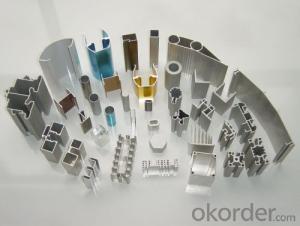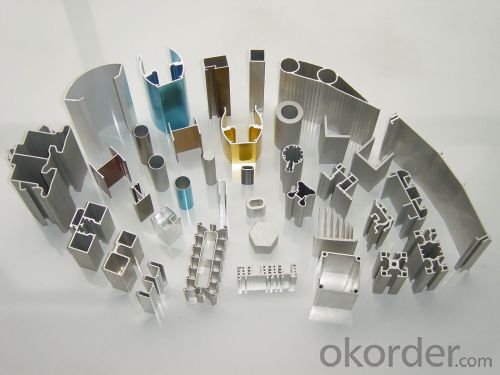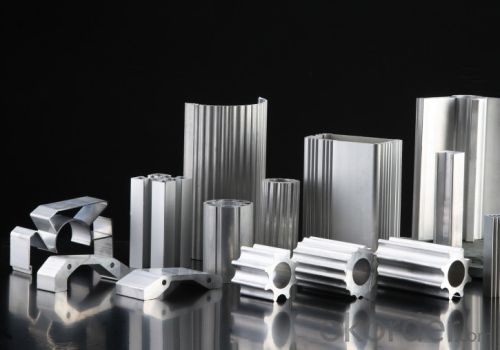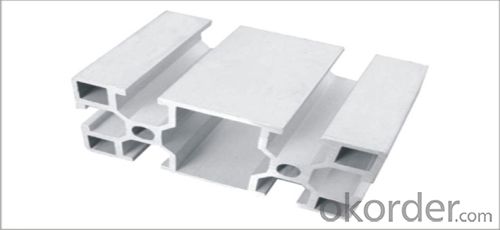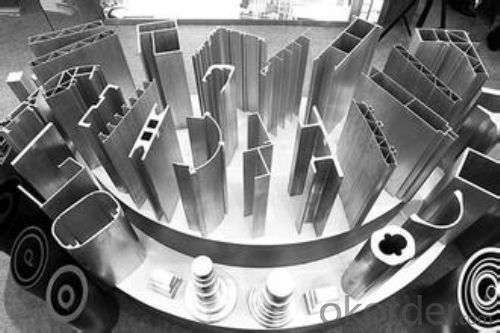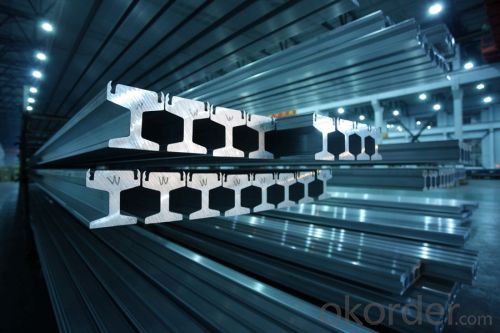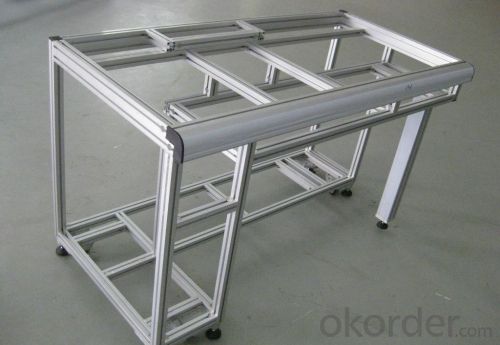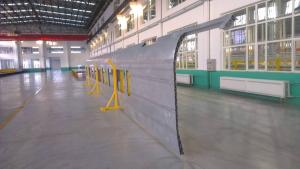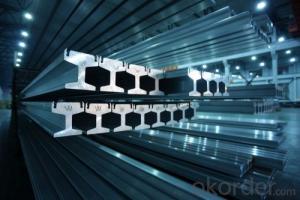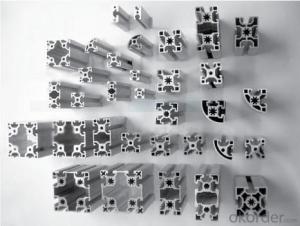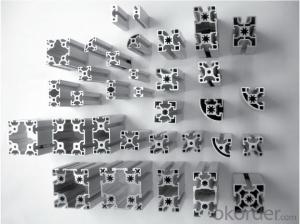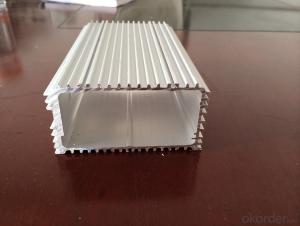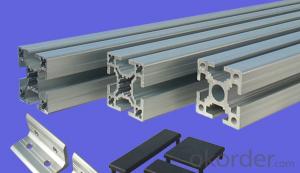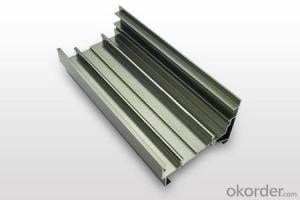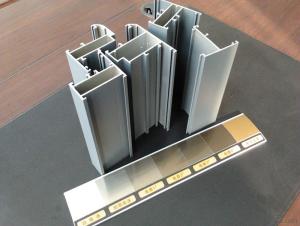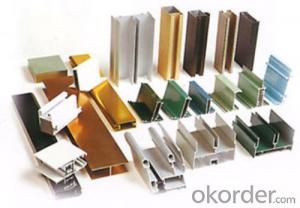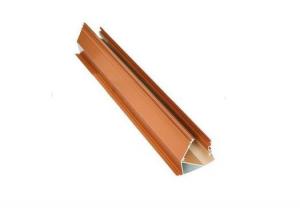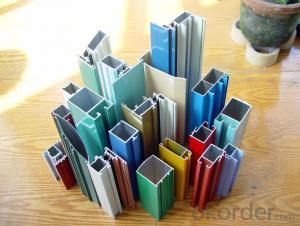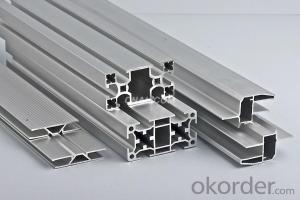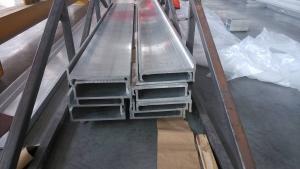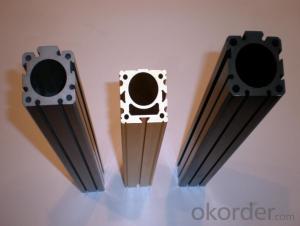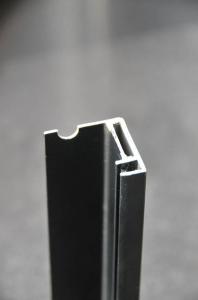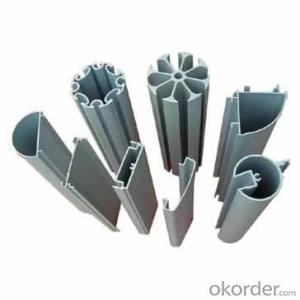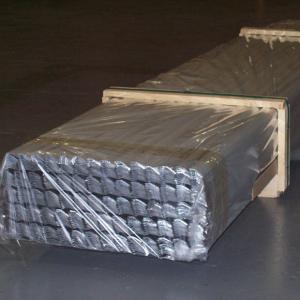Aluminum Profiles UK - High Quality Aluminum Door Profile from CNBM
- Loading Port:
- Shekou
- Payment Terms:
- TT OR LC
- Min Order Qty:
- 0.1
- Supply Capability:
- 10000 m.t/month
OKorder Service Pledge
OKorder Financial Service
You Might Also Like
Aluminum Door Frame
Products Introduction of Aluminum Door Frame
Aluminum frame is made from aluminum and minerals. It's raw matrial for window frame, window frame, and other equipment frame. It's easy for construction, cost less, service longer than other materails. The size and design can be customerized.
Advantage of Aluminum Door Frame
-Build FLEXIBLE equipment, window, door.
-Bolt your structure together
-Build with Aluminum MORE EASILY
-Aluminum costs LESS
-Service life is more than 10 years
-Can be customerized
Specifications
(1) Product: Aluminium Frame;
(2) Material: Alloy 6063/6061/6005/6060, T5/T6;
(3) Finish: anodizing, powder coating, wooden, electrophoresis or any color;
(4) Size: customized, same as drawings or samples;
(5) Standard: High-quality;
(6) Characteristics: strong, stylish, durable, corrosion-resistant.
Aluminium Alloy: 6063, 6061, 6005, 6060 Thermal Treatment: T5, T6
Section Shapes
I, U, T, C, Z, L, H, square, round, flat, hollow, t-slot, and other complicated shapes by custom design.
Surface treating
Mill / Anodizing (oxidation) / Sand blasting / Powder Coating / Electrophoresis / PVDFCoating / Wood effect.
Application
1) - for Window and door frames, for Wardrobe cabinet sliding doors, kitchen, for Building curtain glass walls
2) -for Fencing, Rail, Deck and Frame.
3) - for Solar panel frames, solar mounting / roofing brackets
4) - for Industry assembly lines equipment.
5) - for Heatsinks, for LED lighting.
7) - other by custom design size and dimension
FAQ
-What's your company profile?
We CNBM is the largest building material supplier of China. We are Chinese government owned corporation, which takes the 267th place in WOLD FORTUNE 500 CORPORATION. We own the largest prodcution base in North and South of China. With more than 15 warehouses and offices in different countries, our products sell very well all over the world. We have whole quality control system. We'll be your reliable partner.
-Which kind of payment do you usually support?
TT, LC at sight.
-Can you provide samples?
Yes, we provide free of charge samples, you just need to pay for the delivery.
Photos:
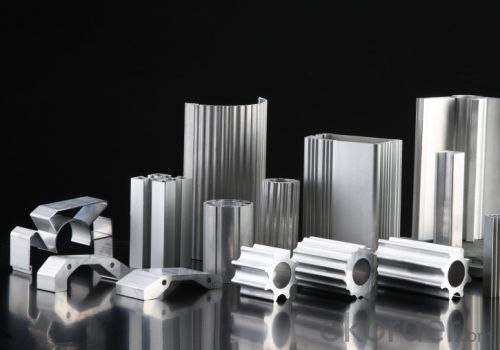
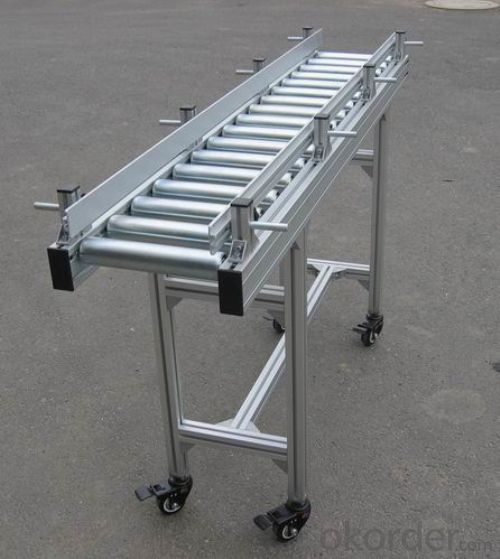
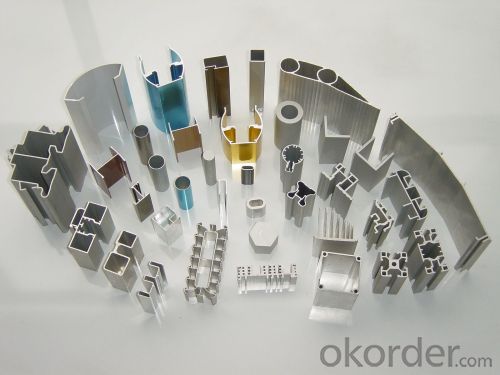
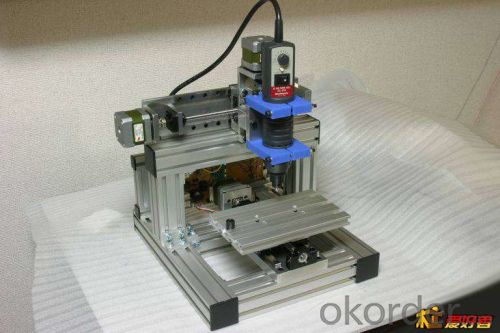
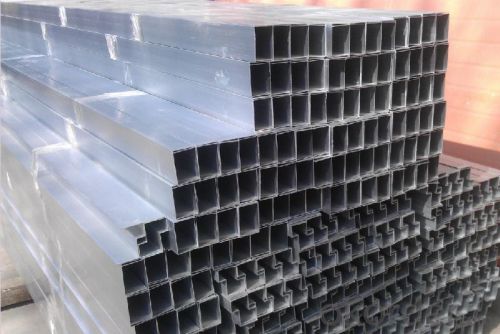
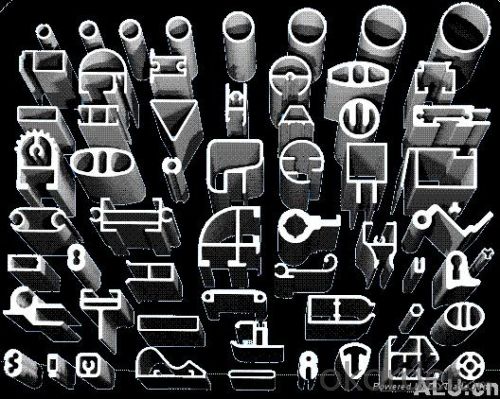
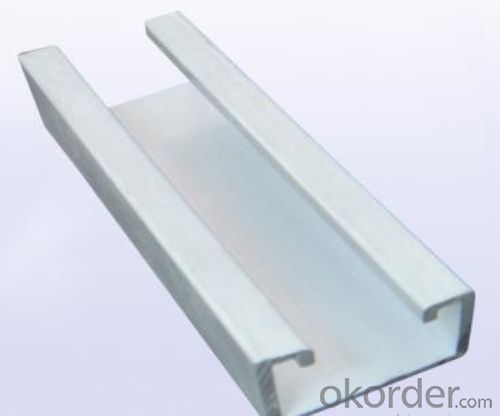
- Q: Are aluminum profiles suitable for greenhouse structures?
- Indeed, greenhouse structures find aluminum profiles to be well-suited. Given its durability, lightweight properties, and resistance to corrosion, aluminum has become a favored material for constructing greenhouse frames. The use of aluminum profiles ensures robustness and steadiness, enabling the creation of resilient greenhouse structures capable of enduring diverse weather conditions. Moreover, aluminum proves to be easily malleable and readily adaptable to meet specific design needs. Furthermore, its low-maintenance nature necessitates only minimal upkeep over time. All in all, aluminum profiles present themselves as a dependable and pragmatic option for greenhouse structures.
- Q: 120 and 150 hidden frame glass curtain wall aluminum profile per square meter dosage, there may be curtain wall quotation cost analysis table
- A window sash is glass, aluminum, metal fittings, glue, these things, aluminum, glass is accounted for the bulk
- Q: This question asks for guidance on selecting the appropriate aluminum profiles for a construction project.
- <p>Choosing the right aluminum profiles for your building project involves several steps. First, consider the specific requirements of your project, such as load-bearing capacity, aesthetic preferences, and environmental conditions. Consult with engineers or architects to determine the appropriate strength, size, and shape of the profiles. Next, evaluate the quality of the aluminum, ensuring it meets industry standards for durability and resistance to corrosion. Look for profiles with good thermal insulation properties and UV resistance to maintain performance over time. Finally, consider the cost-effectiveness and availability of the profiles, as well as the ease of installation and maintenance. Always opt for reputable suppliers to ensure you receive high-quality products that meet your project's needs.</p>
- Q: This question asks for methods to guarantee the reliability of aluminum profiles used in a construction project.
- <p>To ensure the quality of aluminum profiles in your building project, first, source from reputable suppliers with a proven track record. Request for certifications such as ISO 9001 for quality management systems. Inspect the profiles for uniformity in thickness and straightness. Check for surface defects like scratches or dents. Ensure the profiles meet the required strength and durability standards by requesting test reports or conducting your own tests. Verify the alloy composition to ensure it's suitable for your project's environmental conditions. Lastly, consider the manufacturer's warranty and after-sales service as an indicator of their confidence in product quality.</p>
- Q: This question asks for a description of the various dimensions and forms of aluminum profiles that are utilized in siding systems.
- <p>Aluminum profiles for siding systems come in a variety of sizes and shapes to accommodate different architectural styles and structural requirements. Common profiles include flat bars, channels, angles, and Z-profiles. Sizes can range from narrow trims of 10mm to wide panels of over 200mm in width, with thicknesses typically from 0.5mm to 3mm. Shapes are designed for specific functions, such as interlocking for a seamless appearance, or with grooves for attaching insulation. Custom profiles are also available for unique applications. These profiles are chosen based on the building's design, load-bearing needs, and aesthetic preferences.</p>
- Q: Are aluminum profiles suitable for constructing sustainable buildings?
- <p>Yes, aluminum profiles can be used to create sustainable building designs. They are lightweight, which reduces the energy required for transportation and construction. Aluminum is also highly recyclable, with a low energy consumption rate for recycling, making it an environmentally friendly choice. Furthermore, aluminum profiles offer excellent thermal conductivity, which can be utilized in energy-efficient designs to reduce heating and cooling costs. Their durability and resistance to corrosion contribute to the longevity of buildings, reducing the need for frequent replacements and thus lowering the environmental impact over time.</p>
- Q: What are the differences between the 6005 and 6003 aluminum profiles?Yangmingxg3
- 6003 of the magnesium content is higher than 6005, and the strengthening of magnesium to aluminum is remarkable. With the addition of 1% mg, the tensile strength increases by about 34MPa.
- Q: What does aluminum T1.5 mean?
- Aluminum should be referred to the thickness of 1.5MM thick.
- Q: What are the advantages of using aluminum profiles in the automotive aftermarket?
- There are several advantages of using aluminum profiles in the automotive aftermarket. Firstly, aluminum profiles are lightweight, which helps in reducing the overall weight of the vehicle. This, in turn, improves fuel efficiency and performance. Secondly, aluminum profiles offer high strength-to-weight ratio, making them durable and capable of withstanding heavy loads and impacts. Additionally, aluminum is corrosion resistant, which ensures long-lasting performance and reduces maintenance costs. Lastly, aluminum profiles can be easily customized and fabricated, offering flexibility in design and allowing for easy installation in various automotive applications.
- Q: Can aluminum profiles be subjected to painting or coating processes to enhance their aesthetic appeal and longevity?
- <p>Yes, aluminum profiles can be painted or coated to improve their appearance and durability. The process usually involves cleaning the aluminum to remove any contaminants, followed by a conversion coating to enhance adhesion. After that, a primer is applied, and finally, the paint or coating is applied. This not only enhances the visual appeal but also protects the aluminum from corrosion and wear, extending its lifespan.</p>
Send your message to us
Aluminum Profiles UK - High Quality Aluminum Door Profile from CNBM
- Loading Port:
- Shekou
- Payment Terms:
- TT OR LC
- Min Order Qty:
- 0.1
- Supply Capability:
- 10000 m.t/month
OKorder Service Pledge
OKorder Financial Service
Similar products
Hot products
Hot Searches
Related keywords
